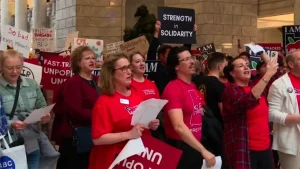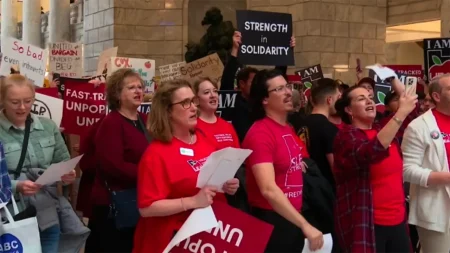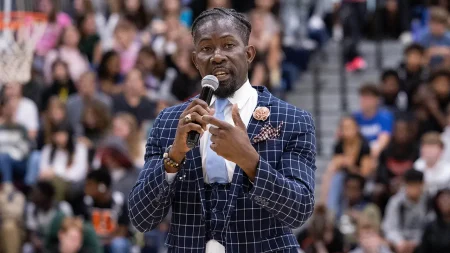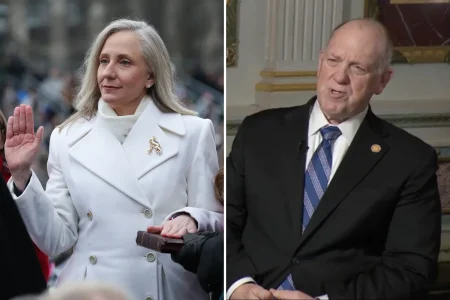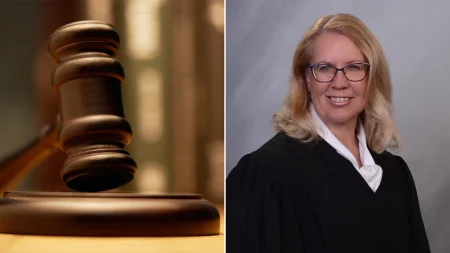Prince Andrew Stripped of Royal Titles Amid Epstein Scandal: A Royal Fall from Grace
Royal Family Distances Itself From Duke of York as Legal Battle Intensifies
In an unprecedented move that has sent shockwaves through the British monarchy, Prince Andrew has been stripped of his military affiliations and royal patronages as his legal troubles related to Jeffrey Epstein continue to mount. The Queen’s decision, announced in a terse statement from Buckingham Palace, marks a dramatic fall from grace for the Duke of York, once considered a respected member of the royal family and a decorated naval officer. This extraordinary development comes as Prince Andrew faces a civil sexual assault case in the United States, with the royal family now clearly signaling their intention to distance themselves from the controversy surrounding the Queen’s second son.
“With The Queen’s approval and agreement, The Duke of York’s military affiliations and royal patronages have been returned to The Queen,” read the statement from Buckingham Palace. The announcement further clarified that “Prince Andrew will continue not to undertake any public duties and is defending this case as a private citizen.” The carefully worded statement effectively removes Prince Andrew from his ceremonial roles within the British military and numerous charitable organizations, positions that had defined much of his public life for decades. Sources close to the royal family indicate the decision was made after extensive consultation among senior royals, including Prince Charles and Prince William, who reportedly advocated for decisive action to protect the monarchy’s reputation amid growing public scrutiny.
The Epstein Connection: How a Friendship Brought Down a Prince
Prince Andrew’s troubles stem from his long-standing association with Jeffrey Epstein, the disgraced financier who died by suicide in 2019 while awaiting trial on federal sex trafficking charges. Virginia Giuffre, one of Epstein’s accusers, has filed a civil lawsuit against the prince, alleging that she was forced to have sexual encounters with him when she was 17 years old. Prince Andrew has consistently denied these allegations, most notably in a widely criticized BBC Newsnight interview in 2019, where his attempts to explain his relationship with Epstein and address the accusations against him were widely viewed as disastrous. The interview, characterized by awkward denials and implausible explanations, including claims about his inability to sweat and his whereabouts on the night in question, only intensified public scrutiny and raised more questions about his judgment.
The prince’s friendship with Epstein spanned many years, with photographs documenting their relationship even after Epstein’s first conviction for soliciting prostitution from a minor in 2008. Despite the conviction, Prince Andrew continued his association with Epstein, staying at his New York mansion in 2010 after Epstein’s release from prison. This decision has been particularly damaging to the prince’s reputation, suggesting either a profound lack of judgment or an alarming indifference to Epstein’s crimes. Royal commentators note that this friendship represents a catastrophic failure of discretion for someone in Prince Andrew’s position, with one former palace adviser describing it as “the most serious crisis for the monarchy since the abdication of Edward VIII.”
Legal Challenges Mount as Royal Protection Dissolves
The stripping of Prince Andrew’s titles comes at a critical juncture in his legal battle. Just days before the palace announcement, U.S. District Judge Lewis Kaplan rejected Prince Andrew’s motion to dismiss Giuffre’s lawsuit, allowing the case to proceed toward a potential trial. Without his royal titles, Prince Andrew now faces this legal challenge as a private citizen, effectively removing any institutional protection the monarchy might have previously afforded him. Legal experts suggest this development significantly alters his position, potentially exposing him to more rigorous examination and limiting his resources for defense.
The legal process ahead presents numerous challenges for the prince. If the case proceeds to trial, he could face deposition under oath, requiring him to answer questions about his relationship with Epstein and the specific allegations made by Giuffre. Alternatively, he may seek a settlement to avoid the public spectacle of a trial, though such a resolution would likely be interpreted by many as an admission of wrongdoing despite any formal denial of liability. Mark Stephens, a specialist in international law at the firm Howard Kennedy, explained: “The removal of his titles signals that the institution of the monarchy is now fully separating itself from Prince Andrew’s legal problems. He stands alone in this matter, without the customary protections of royal status.” This isolation represents a profound shift for someone who has lived his entire life within the protective embrace of one of the world’s most powerful institutions.
Public Opinion and the Future of the Monarchy
Public reaction to Prince Andrew’s fall has been largely unsympathetic, with polling indicating widespread disapproval of his handling of the situation and diminishing support for his continued role in public life. In Britain, where the monarchy remains a central institution of national identity, the scandal has prompted uncomfortable questions about privilege, accountability, and the role of the royal family in contemporary society. Republican sentiment, while still a minority position in the UK, has gained some traction amid the controversy, with advocates for abolishing the monarchy pointing to the case as evidence of fundamental problems with hereditary power and privilege.
The monarchy, however, has demonstrated remarkable institutional resilience throughout this crisis. By decisively separating Prince Andrew from his official roles, the Queen has sought to protect the broader institution while sacrificing her reportedly favorite son to public accountability. Royal historian Dr. Catherine Haddon of the Institute for Government noted: “This represents a remarkably modern approach from an ancient institution. The monarchy has survived for centuries precisely because of its ability to adapt and respond to changing social expectations.” As the royal family navigates this unprecedented situation, much attention has focused on the leadership shown by Prince Charles and Prince William, who reportedly urged a firm response and demonstrated the future direction of the monarchy under their eventual stewardship.
The Broader Implications: Power, Privilege, and Accountability
The Prince Andrew scandal transcends royal intrigue, touching on fundamental questions about power dynamics, privilege, and justice in high-profile sexual misconduct cases. Advocates for survivors of sexual abuse have noted the significance of Giuffre’s case proceeding despite the prince’s status, viewing it as a potential watershed moment in holding powerful figures accountable. “This case demonstrates that no one, not even royalty, should be beyond the reach of justice when serious allegations are raised,” said Deborah Epstein, Director of the Domestic Violence Clinic at Georgetown University Law Center. “The fact that these allegations are being examined in court rather than dismissed outright represents progress in how our society handles claims against powerful individuals.”
The controversy also arrives at a moment of transition for the British monarchy. As Queen Elizabeth II enters the twilight of her historic reign, the institution faces increasing scrutiny about its relevance, cost, and place in a democratic society. The handling of the Prince Andrew situation may well become a case study in crisis management for institutions navigating public scandal in the social media age. By removing Prince Andrew from his royal duties and stripping him of his titles, the Queen has taken extraordinary steps to preserve the monarchy’s standing while acknowledging the seriousness of the allegations against her son. Whether these measures will be sufficient to contain the damage remains uncertain, but they undoubtedly mark one of the most significant crises for the House of Windsor in modern times. As Prince Andrew now faces his legal challenges as a private citizen, both he and the institution he was born into enter uncharted territory, navigating a path between accountability, justice, and preservation of a thousand-year-old monarchy.


